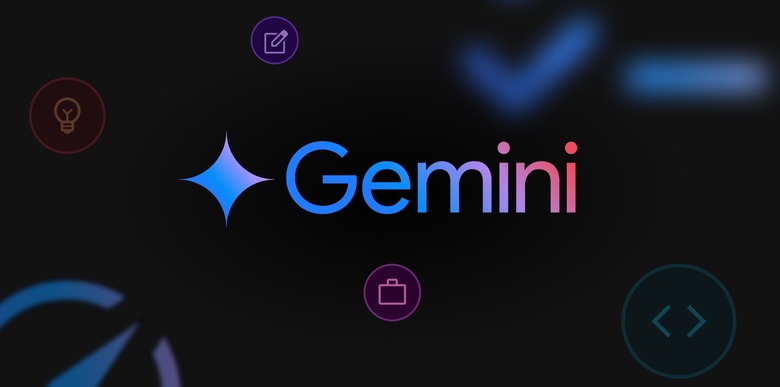Gemini AI Is Coming To Your Car, Watch, TV, And More
Google on Tuesday hosted a special Android Show: I/O Edition event streamed on YouTube a week before I/O 2025. This is the event Google needed to go over the big Android 16 redesign and new security features ahead of Google I/O, likely because the developers conference will focus on Gemini and other AI innovations. There probably won't be time for in-depth Android presentations.
While Google's AI events don't need to discuss Android, any Android event has to feature at least some Gemini news since Gemini is now at the heart of Android.
Google's Tuesday event did have its own Gemini segment, with Google confirming that Gemini AI will become the default assistant across devices. After the phone, Gemini will be available in the car (Android Auto and cars with Google built-in), Wear OS smartwatches, Android TVs, and future Android XR devices.
This evolution makes sense for Google. The company wants its AI products to integrate with as many apps as possible and run on as much hardware as possible. Fans of AI tools like Gemini and Gemini Live will want the same thing. Gemini will be much more useful if it can pull data from various Google apps and be accessible across multiple devices.
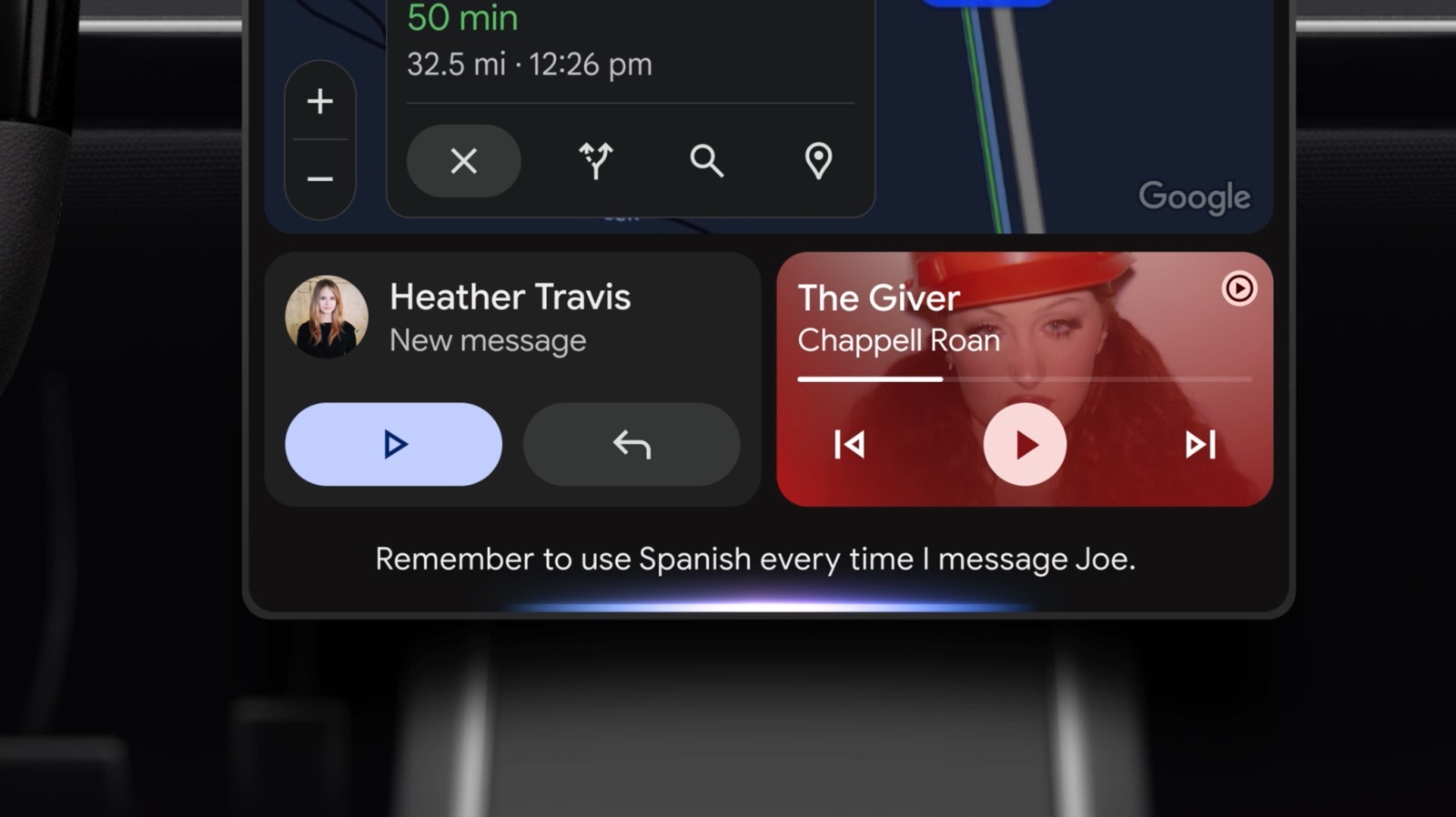
Gemini should boost your productivity while you drive, as long as you connect your Android phone to your car (Android Auto) or use a car with Google built-in. You'll be able to speak naturally and ask the AI to handle specific tasks.
For example, you can tell Gemini to send messages to your contacts and even ask it to always send texts to a specific person in a different language.
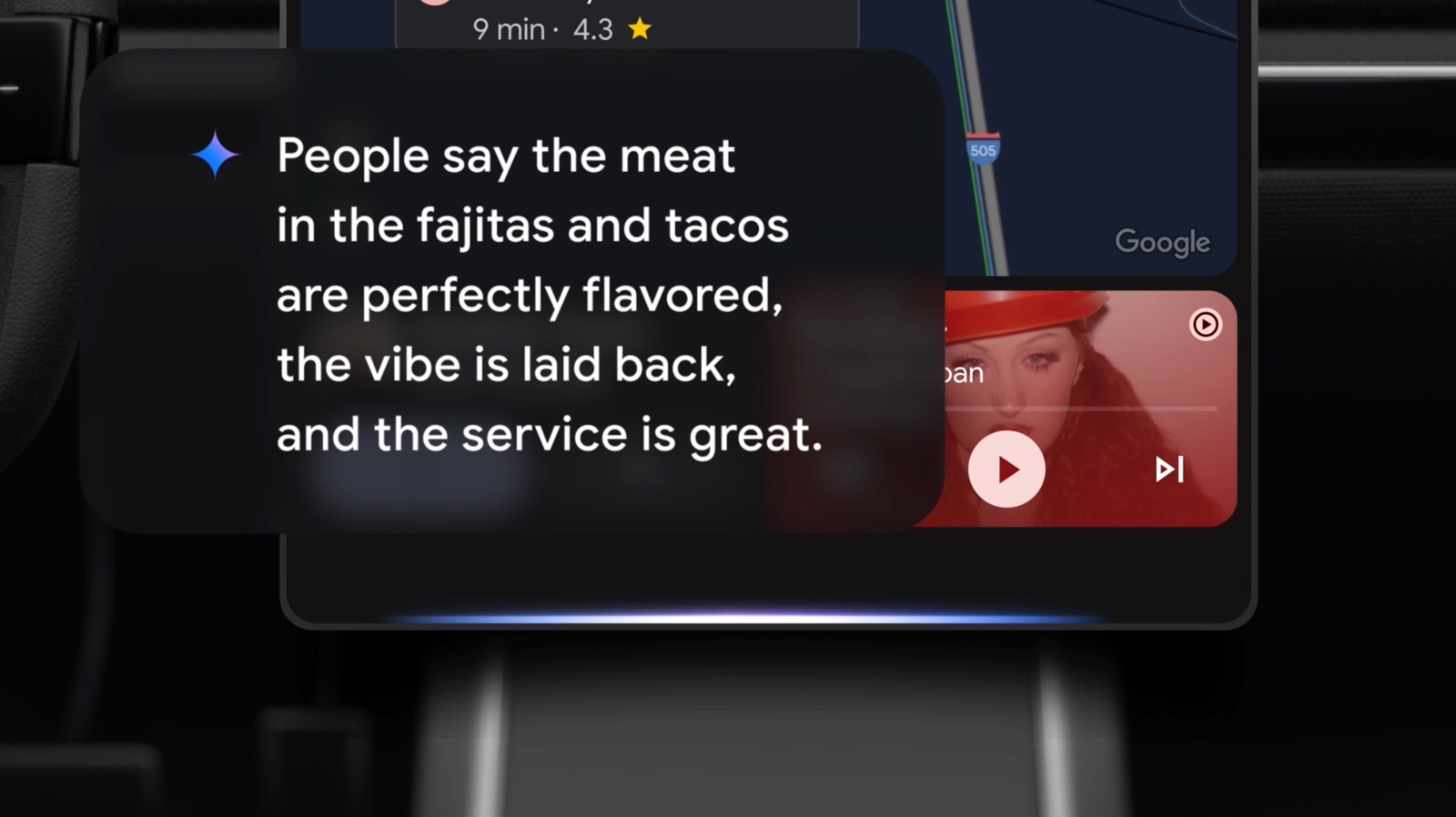
You can also ask Gemini to recommend places nearby, like restaurants and charging stations. In those cases, Gemini will use Google Maps to find the information.
Gemini can also pull information from Gmail, like a location from an email, and help you find content on YouTube Music and Spotify.
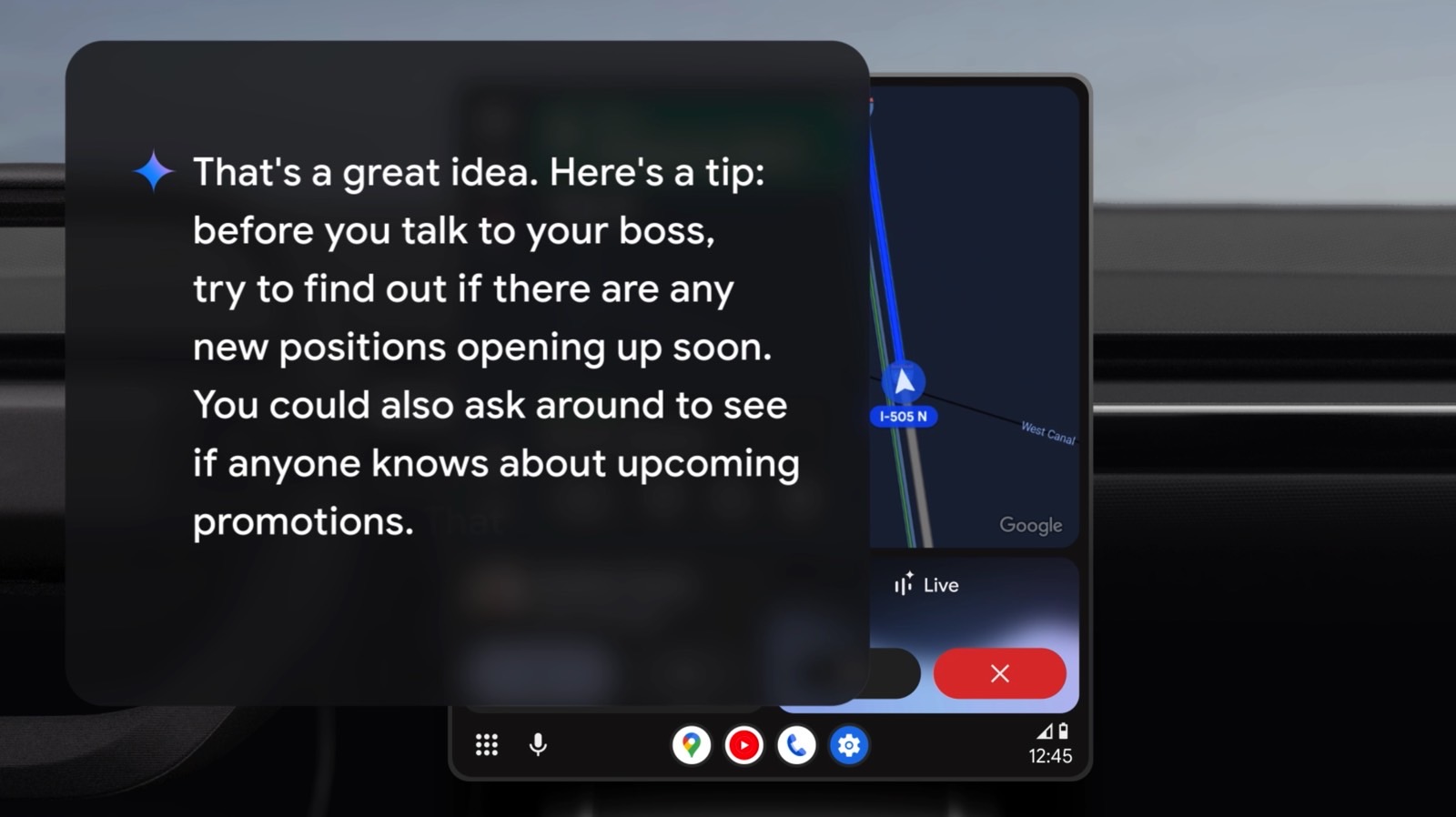
Then there's Gemini Live, which lets you have real-time voice conversations with the AI about any topic. It can help pass the time on your commute, keep you updated on the news, and help you prep for meetings or events.
Gemini AI on Wear OS devices will need an internet connection through your phone or the watch's cellular service, but some features will also work on-device.
Just like in cars, Gemini AI on wearables can tap into data from other Google apps. You can talk to your wrist instead of pulling out your phone. Gemini can also save reminders, like your gym locker number or where you parked.
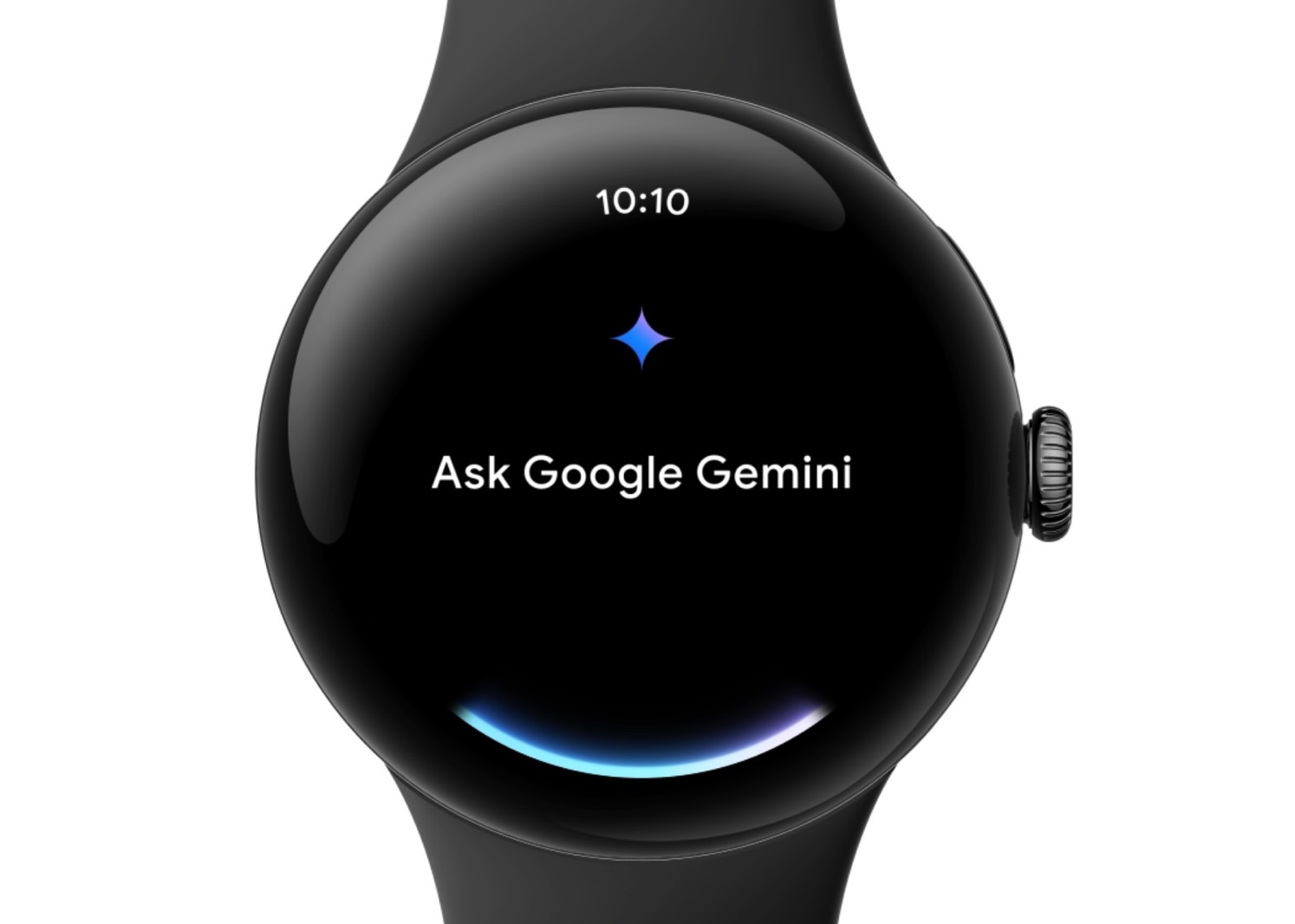
Gemini will also be on Google TV devices to help with show recommendations. The AI can answer questions by pulling relevant YouTube clips.
Google is also bringing Gemini AI to Android XR devices, starting with Samsung's first XR model set to launch later this year.
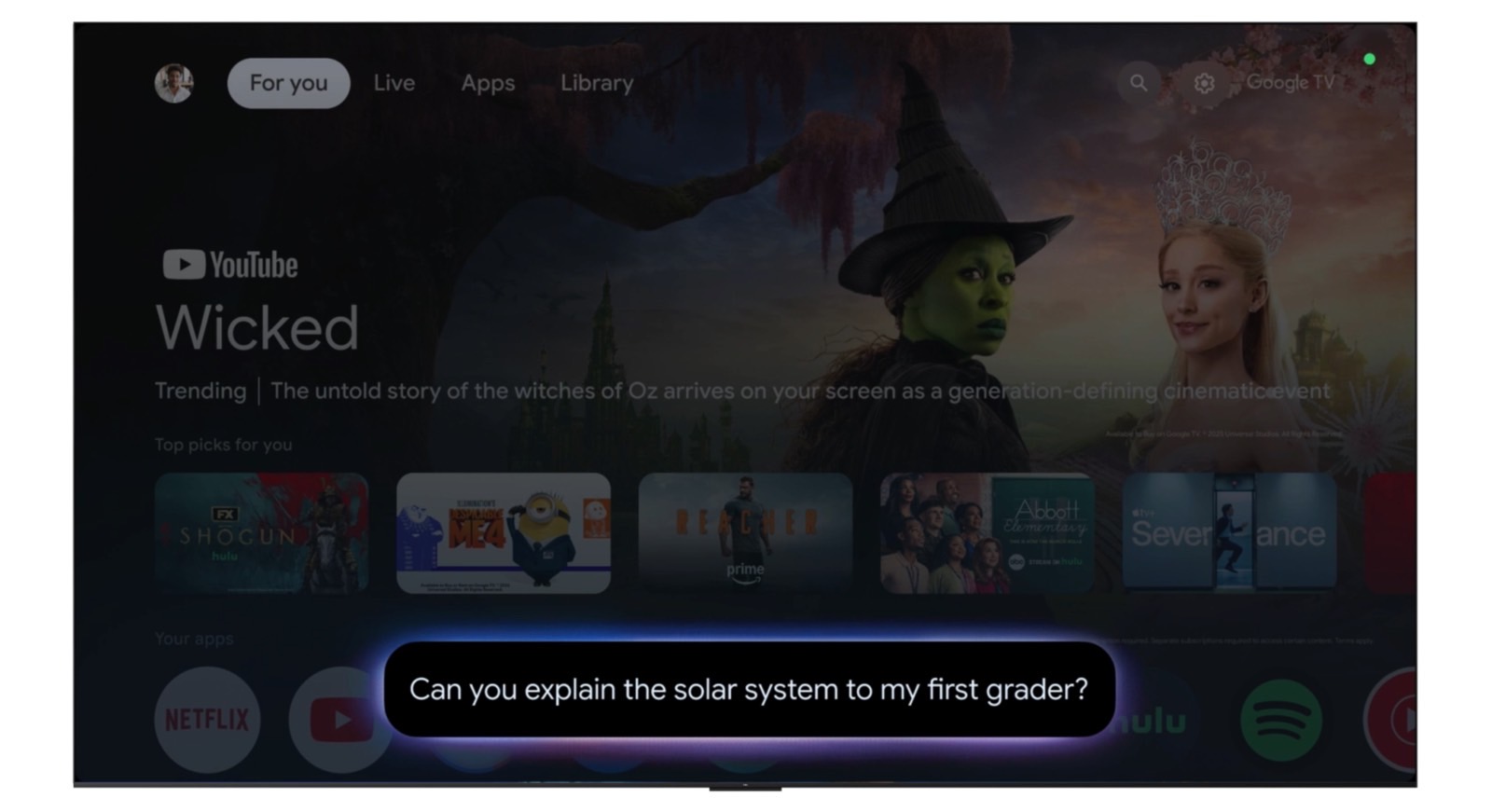
Gemini will be central to Android XR. That was already clear back in December when Google first announced the platform, but the company confirmed it again during a press briefing BGR attended before Tuesday's event. Gemini AI will serve as the main user interface layer for Android XR devices.
It will use its multimodal vision and audio capabilities to respond to what you see and hear. The AI will deliver a different kind of experience compared to other devices. For instance, Gemini can help you plan a trip by "surrounding you with videos, maps, and local tips, creating an entire itinerary in minutes while providing a more realistic feel for the place you're researching."
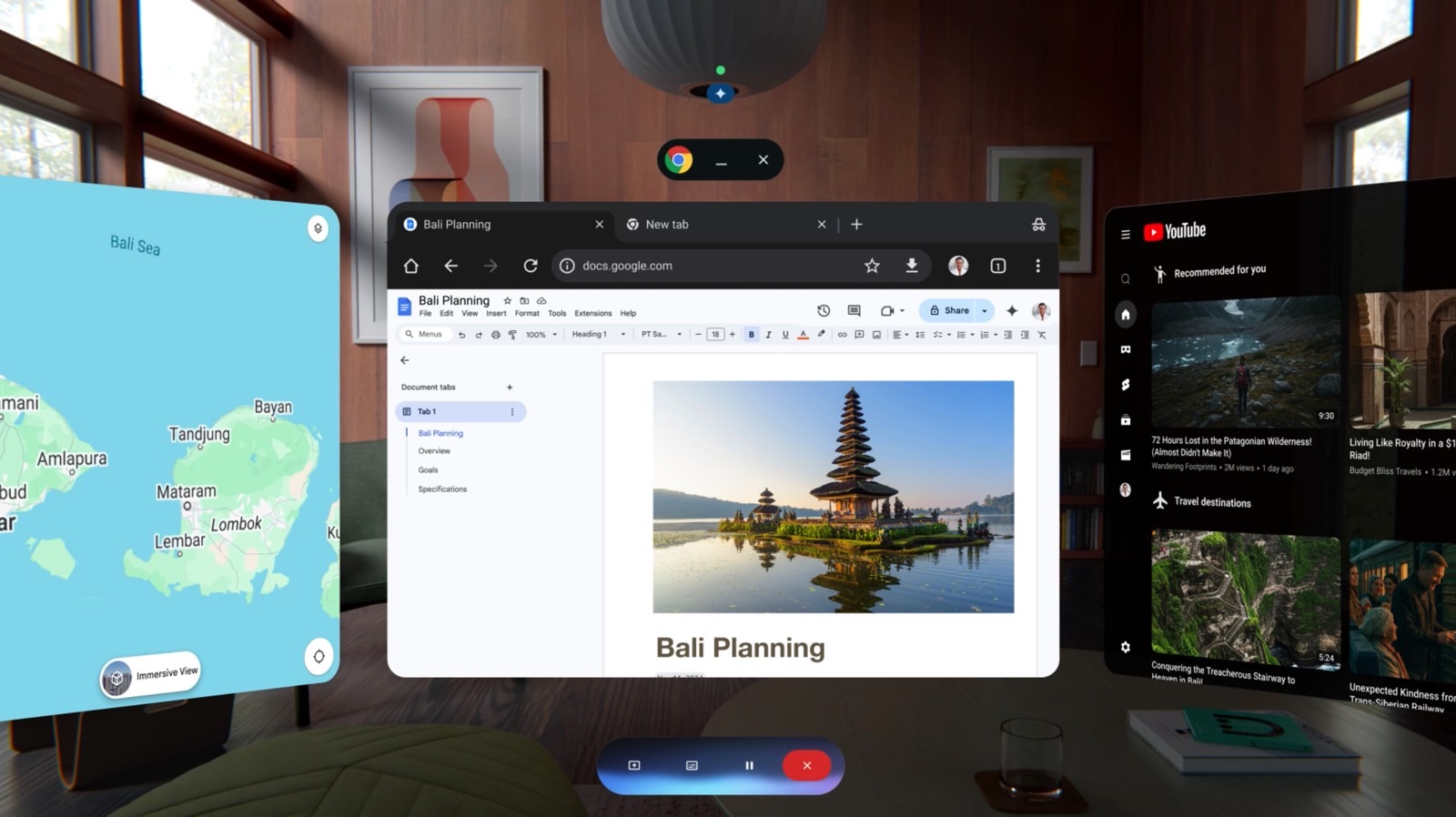
That's a compelling scenario, and I say that as someone already using ChatGPT to make travel plans in a simple, written format.
Gemini AI will roll out to all these devices later this year, so you'll have to wait before using Google's AI on gadgets beyond phones and tablets.
